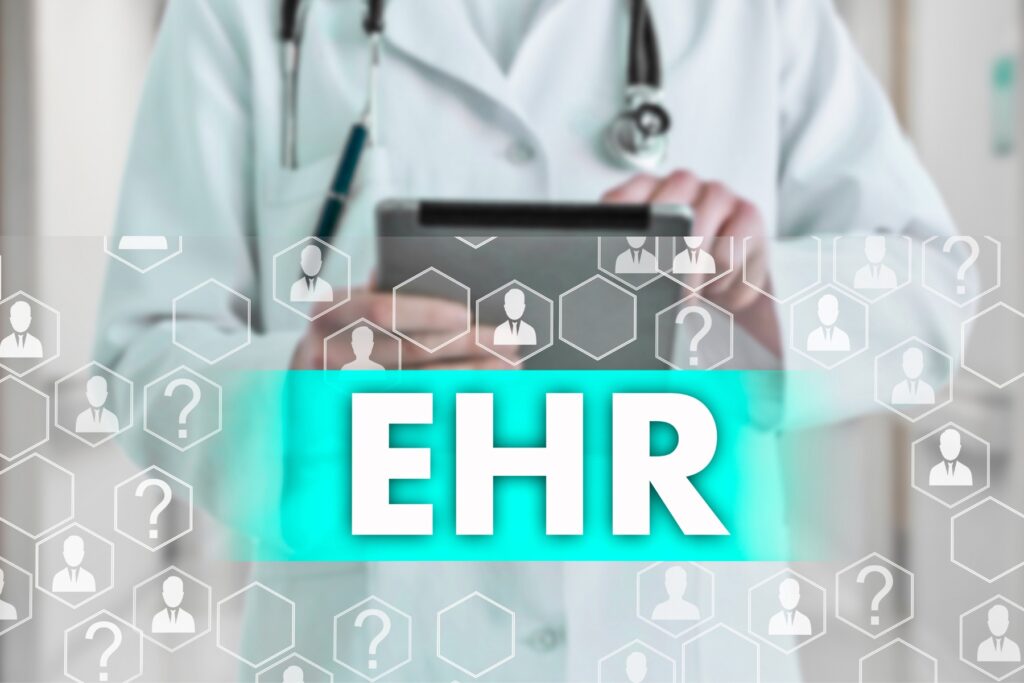The Benefits of Implementing Electronic Health Records (EHR) in Dental Practices

In today’s digital age, the implementation of Electronic Health Records (EHR) has revolutionized the healthcare industry. This blog post will explore the benefits of adopting EHR systems, specifically in dental practices, highlighting how this technology can enhance patient care, streamline workflow, and improve overall practice efficiency.
Electronic Health Records (EHR) have become a game-changer in the healthcare industry, and dental practices are no exception. The adoption of EHR systems offers many benefits that positively impact patients and dental professionals. Let’s explore the advantages of implementing Electronic Health Records in dental practices.
Enhanced Accessibility and Information Sharing:
One of the significant advantages of EHR systems is the easy accessibility of patient records. With EHR, dental professionals can access patient information, treatment plans, and diagnostic data instantly and securely. EHR enables seamless collaboration and information sharing among healthcare providers involved in patient care. Improved accessibility and information sharing lead to better coordination, fewer errors, and enhanced patient outcomes.
Improved Efficiency and Workflow Optimization:
EHR systems streamline various dental practice processes, resulting in improved efficiency and optimized workflow. Digital charting eliminates the need for paper-based records, reducing administrative burdens and saving time. Automated appointment reminders ensure patients stay on track with oral health care, reducing no-shows and optimizing scheduling. Additionally, integrated billing features simplify the billing and claims process, reducing errors and improving revenue cycle management.
Comprehensive Treatment Planning:
EHR systems empower dental professionals to create comprehensive treatment plans by integrating patient data points. It includes medical history, radiographs, treatment notes, and more. By having a holistic view of the patient’s oral health information, dental practitioners can develop customized treatment plans tailored to individual needs. EHR systems also allow for easy tracking of treatment progress, enabling better monitoring of patient outcomes and ensuring more precise and effective treatment strategies.
Enhanced Patient Engagement and Communication:
EHR systems promote active patient engagement and communication. Online portals enable patients to schedule appointments conveniently and securely and communicate with their dental providers. Patients can access educational resources, view treatment plans, and receive crucial oral health information. Improved patient engagement leads to better oral health outcomes, increased satisfaction, and stronger patient-provider relationships.
Improved Data Accuracy and Analysis:
Manual data entry is prone to errors and can result in incomplete or inaccurate patient records. EHR systems minimize these risks by automating data entry and providing built-in checks for accuracy and completeness. It ensures that patient information is reliable and up-to-date. Furthermore, EHR systems generate comprehensive reports and data analysis, allowing dental practices to identify trends, track key performance indicators, and make informed decisions to improve patient care and practice efficiency.
Conclusion:
Implementing Electronic Health Records (EHR) systems in dental practices offer numerous benefits, including enhanced access to patient information, improved practice efficiency, comprehensive treatment planning, increased patient engagement, and improved data accuracy. Embracing this digital transformation can lead to better patient care, streamlined workflows, and improved practice outcomes in the ever-evolving dental landscape. By harnessing the power of EHR systems, dental practices can provide enhanced dental services and deliver optimal oral healthcare to their patients.
References:
https://www.ada.org/en/member-center/member-benefits/practice-resources/dental-technology/digital-dental-records


